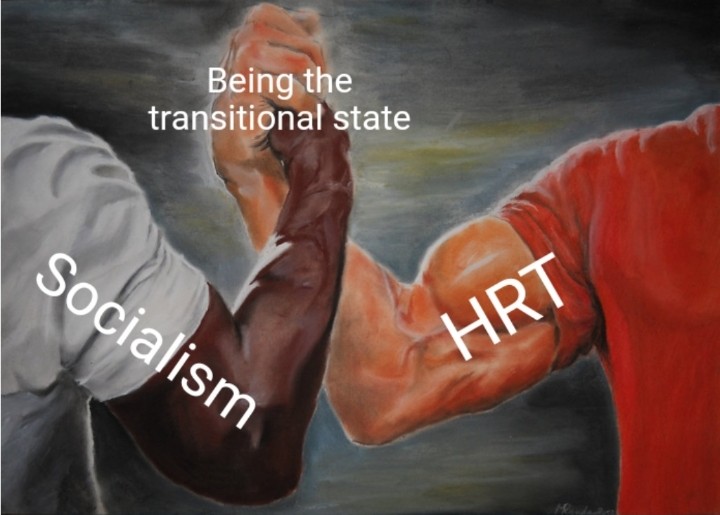LITTLE ROCK, Ark. (AP)—It was pharmacist Gwendolyn Herzig’s first time testifying before a legislative committee when she spoke to several Arkansas lawmakers in a packed hearing room this month about a bill restricting gender-affirming care for minors.
Herzig, who is transgender, spoke out against the legislation and told the panel that one of the biggest obstacles trans people face is a lack of empathy. Only a few minutes later, a Republican lawmaker asked her an inappropriate question about her genitalia.
“It was horrifying,” she said.
The exchange, which was livestreamed on the Legislature’s website and has since been widely shared on social media, is an example of the type of demeaning questions and rhetoric that transgender people meet when they show up to statehouses to testify against new bills targeting their rights.
In South Dakota, a lawmaker invoked “furries”—people who dress up as animals—when talking about gender-affirming care. In Montana, a legislator compared parents supporting their children in finding treatment to asking doctors to carry out medically assisted suicide.
Advocates worry that increasingly hostile rhetoric about transgender people could have a chilling effect on those who want to speak out against new restrictions and could do lasting damage to a community of trans youth that is already marginalized.
“I feel like that’s what they’re trying to do, to keep us from coming and exercising this right that we have,” said Rumba Yambu, executive director of Intransitive, an advocacy and support group for transgender people in Arkansas. “Because who wants to go and be asked about their genitalia in front of a bunch of strangers? Especially strangers in power.”
So far this year, at least 150 bills targeting transgender people have been introduced, which is the highest in a single year, according to the Human Rights Campaign.
Bans on gender-affirming care for minors have already been enacted this year in South Dakota and Utah, and Republican governors in Tennessee and Mississippi are expected to sign similar bans into law. Arkansas and Alabama have bans that were temporarily blocked by federal judges.
The push has included efforts in some states to restrict gender-affirming care for adults and proposed bans on drag shows that opponents have warned would also discriminate against transgender people.
Herzig came to the state Capitol to testify against a bill attempting to reinstate Arkansas’ ban on gender-affirming care for minors by making it easier to file malpractice lawsuits against providers. In her testimony, Herzig talked about working with transgender patients who are on hormone replacement therapy.
“Bills like SB199 are designed to hinder, not help, Arkansans by creating barriers to evidence-driven health care they deserve under the guise of helping the young and innocent,” she said, later saying a vote for the bill was “unpatriotic, and casts doubts on our own health and research institutions who have worked through health care fields to improve the lives of Americans.”
During follow-up questions, Republican Sen. Matt McKee asked Herzig if she is transgender.
When she said yes, he asked: “Do you have a penis?”
The question was met with jeers and audible gasps in the packed committee room.
“That’s horrible,” Herzig responded, telling McKee that asking her such a question was inappropriate and noting she was testifying as a health care professional.
“I had never been so publicly humiliated in my life,” Herzig told The Associated Press in an interview days later.
McKee did not respond to an email or phone call, but defended his question in a written statement.
“As a father of four daughters, I will do everything in my power to protect my children and the children of Arkansas, especially from the woke mob who intend to push their agenda and beliefs down our throats and destroy our families,” McKee’s statement said.
The idea of protecting children by withholding medical care is undermined by health experts, who have said minors with gender dysphoria who do not receive appropriate care face dramatically increased risk of suicide and serious depression.
McKee’s questions were similar in tone to those posed to Debi Jackson’s teen Avery, who is transgender and nonbinary, when they testified before Missouri legislators last year about a proposal to ban trans girls and women from participating on sports teams matching their gender identity.
During the hearing, a lawmaker asked Avery if they were “gonna go through the procedure.” Since that exchange, Jackson said Avery hasn’t wanted to testify again before the Legislature.
“It’s this same idea that in any of these discussions about trans people just being treated with basic dignity and respect, legislators want to reduce them to one body part,” Jackson said. “They miss the entirety of the human being sitting in front of them having a conversation.”

Advocates say the rhetoric surrounding these proposed bans further exacerbates an already treacherous environment for transgender people, their families, and medical providers. Children’s hospitals around the country have faced an uptick of harassment and threats of violence for providing gender-confirming care.
Though she said she’s received an outcry of support since her testimony, Herzig said she and the pharmacy she owns have also gotten hateful emails and calls.
People opposed to gender-affirming care for minors argue that children are too young to make decisions about their futures, sometimes comparing such treatments to child abuse. That’s despite medical experts saying the care is safe when administered properly.
Nearly every major medical group, including the American Medical Association, has opposed the bans on such care for minors.
Republican Texas Gov. Greg Abbott last year ordered the state’s child welfare agency to investigate reports of gender-affirming care for kids as abuse, but a judge has since blocked those investigations.
Amber Briggle, the mother of a transgender teenager in Texas whose family was investigated after Abbott’s order, said she gets frustrated when speaking before lawmakers in her state who she thinks already have made up their minds on the issue. But Briggle said she plans on returning to Texas’ Capitol this year and that Herzig’s encounter motivates her even more to show up and speak out.
“They should not have to fight this alone,” Briggle said of transgender people testifying in statehouses. “They should know they have loving, supporting allies in their corner.”
Herzig said she probably would not have testified had she known she was going to be asked about her genitalia. “I felt like I was pretty much prepared for any combative question,” she said. “Except that.”






